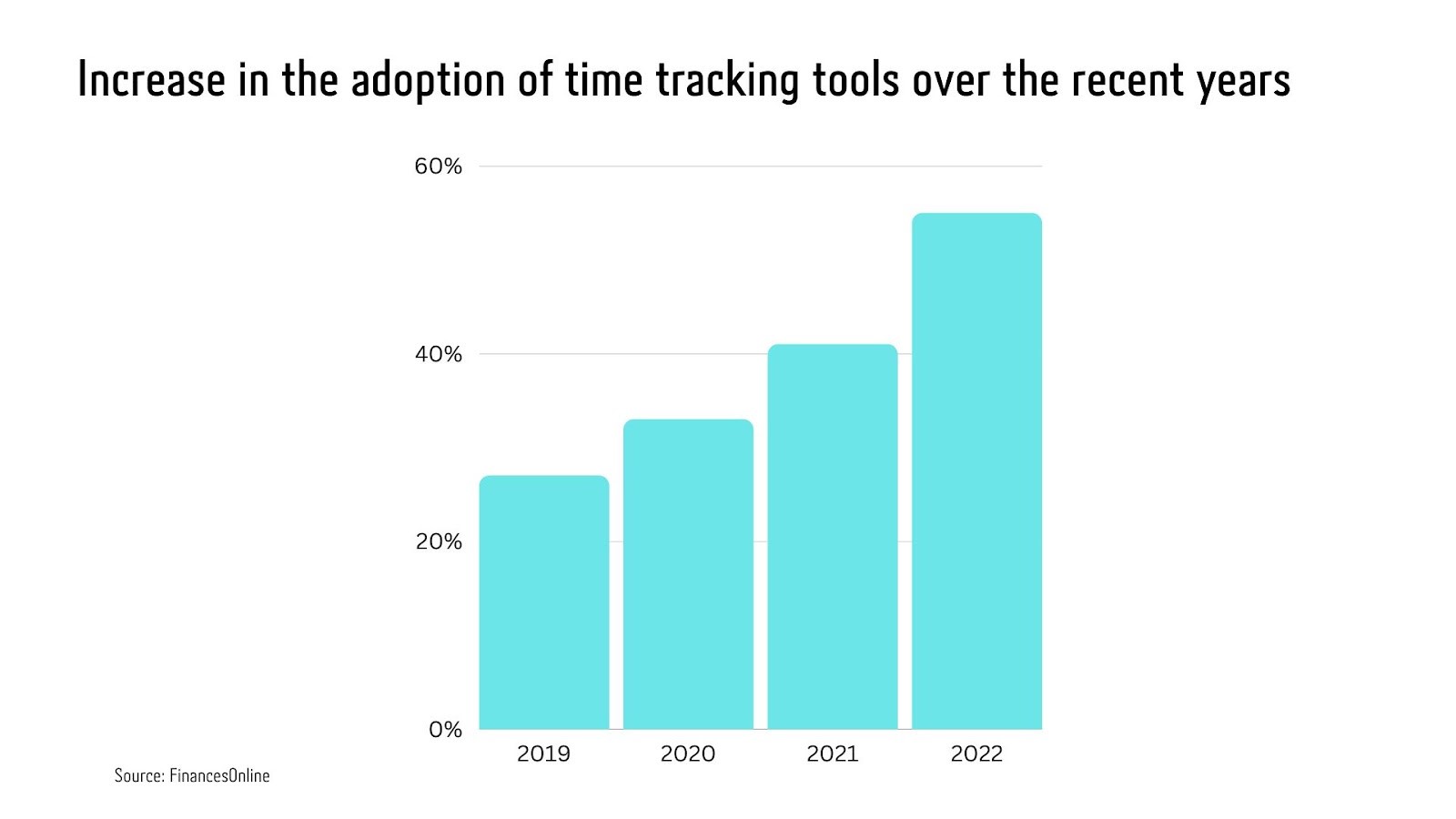
Do Startups Need a Time Card Calculator to Track Employees and Project Performance?
Time is the most precious resource for any startup. Effective time management can make or break a fledgling business. Despite this, many startups underestimate the value of implementing time-tracking tools like time card calculators.
Time tracking may seem excessive, but the data and insights it provides are invaluable for startups trying to optimize productivity and accelerate growth. Even if you don’t bill by the hour, understanding where your team’s time goes is crucial for making smart resource allocation decisions and maintaining realistic schedules.
The Imperative of Time Management in Startups
For early-stage startups, time equals money. As the saying goes, “Time is money, but money can’t buy time.” Startups need to optimize every minute to get the maximum ROI on their efforts. Without proper time management, startups can quickly fall behind schedule and go over budget.
Poor time management practices can cripple a startup’s productivity. Without structure or accountability, employees may fritter away precious hours on non-essential tasks. Implementing a time clock calculator provides the tracking and analytics to identify such inefficiencies. With a time clock, startups can closely monitor where time is being spent, ensuring resources are properly allocated to the most critical tasks and projects. The visibility enables data-driven decisions to improve efficiency.
The Skepticism Surrounding Time Card Calculators
Some startups argue that time tracking seems excessive for their unstructured work culture. They make two key claims:
“We don’t bill by the hour, so time tracking is pointless.”
While hourly billing may not be relevant, understanding where time goes is still vital. Data-driven insights can help optimize schedules, tasks, and processes even without hourly billing.
“Time tracking hurts creativity and freedom.”
Overly rigid tracking can indeed backfire. However, the right software balances flexibility with structure. Privacy controls also prevent micromanaging.
The Quantitative Edge: How Time Card Calculators Add Value
Time card calculators provide a wealth of data to enhance productivity in multiple ways:
Task time analysis: Gain a granular understanding of how long tasks take to complete. Identify quick-win areas for time savings vs. tasks requiring heavier time investment.
Resource allocation: Quantify both human resource needs and financial resource needs accurately to complete projects. Ensure the right people and budget are allocated to tasks.
Bottleneck identification: Pinpoint specific processes that are slowing things down. Whether it’s inadequate staffing or inefficient workflows, precise tracking shines a light on problem areas.
Capacity planning: Understand team bandwidth to accurately gauge the ability to take on additional work. Avoid overcommitting resources.
Client billing: Log billable hours worked on client projects, even if you do not bill by the hour. This provides data for value-based billing.
Expense tracking: Capture expenses as they occur and tie them back to specific projects. Helps with capturing reimbursable client expenses.
Profitability analysis: Combine time and expense data to analyze profit margins by project, department, client, etc. Identify your most and least profitable work.

Optimization and Continuous Improvement
The insights from time tracking lead to optimization opportunities:
- Streamline workflows: Eliminate redundancies and wasted steps in processes. Review the time logs to identify areas where multiple people are repeating the same tasks or spending too long on low-value activities. Consolidate and simplify workflows.
- Schedule better: Reduce multitasking and context switching by better scheduling. The time data can be used to batch similar tasks together and build team schedules that minimize task switching.
- Set expectations: Provide realistic timelines to customers and stakeholders based on historical data. This prevents overpromising delivery times.
- Improve focus: Block off larger chunks of distraction-free time for “Deep Work”. The analytics help quantify how much time is lost to distractions and context switching. Use this to create dedicated focus time.
- Automate tasks: Identify manual tasks that can be automated to free up time. The tracking highlights repetitive and routine tasks that can be streamlined or automated through technology like scripts, macros, and AI.
- Realign resources: If the data shows certain team members have availability, realign tasks and projects to maximize resource utilization. Ensure people’s time is optimized.
- Rightsize teams: If an overload is chronic, time analysis provides the case to hire additional resources or outsource work.
The Quantitative Edge: How Time Card Calculators Add Value
Time card calculators provide a wealth of data to enhance productivity in multiple ways:
- Task time analysis: Gain a granular understanding of how long tasks take to complete. Identify quick-win areas for time savings vs. tasks requiring heavier time investment.
- Resource allocation: Quantify both human resource needs and financial resource needs accurately to complete projects. Ensure the right people and budget are allocated to tasks.
- Bottleneck identification: Pinpoint specific processes that are slowing things down. Whether it’s inadequate staffing or inefficient workflows, precise tracking shines a light on problem areas.
- Capacity planning: Understand team bandwidth to accurately gauge the ability to take on additional work. Avoid overcommitting resources.
- Client billing: Log billable hours worked on client projects, even if you do not bill by the hour. This provides data for value-based billing.
- Expense tracking: Capture expenses as they occur and tie them back to specific projects. Helps with capturing reimbursable client expenses.
- Profitability analysis: Combine time and expense data to analyze profit margins by project, department, client, etc. Identify your most and least profitable work.
The Client Perspective: Why They Want You to Use a Time Card Calculator
For startups, instilling trust and confidence with clients is crucial. Time tracking demonstrates reliability in these ways:
- Predictable timelines: Historical time data enables more realistic estimates of how long projects will take. This results in accurate delivery timelines instead of missed expectations.
- Value for money: Billable hours tracking reassures clients their money is being well spent. They can validate they are being charged fairly for the work delivered.
- Accountability: Detailed time logs provide transparency and prevent discrepancies between the client and startup around delivery.
- Proactive communication: If delays arise, the granular data helps explain exactly why and how schedules need to shift.
- Iterative improvements: Time metrics help identify ways to add more value for clients by iterating on processes.
- Competitive advantage: Professionally managed projects and continuous improvements provide a competitive edge.
- Positive referrals: Satisfied clients are more likely to refer the startup to peers due to their professionalism.

Frequently Asked Questions
- Is time tracking an invasion of employee privacy?
Some employees may perceive time monitoring as invasive. Options like privacy modes, random sampling, and flexible policies help preserve privacy while still gathering useful data. The key is open communication on how the data is used.
- How does time tracking affect employee morale?
Studies show time tracking alone does not hurt morale. Concerns arise from how the data is leveraged. Providing positive performance feedback and sharing insights to help employees work smarter prevents misuse. Transparent policies and training managers on providing feedback are key.
- What are the costs involved in implementing a Time Card Calculator?
Basic time-tracking apps often have free tiers, with paid plans starting around $7 per user/month for additional features. Implementation costs involve user training and management oversight. The return from productivity gains and optimized use of investor capital outweigh the costs.
Key Takeaways
Time management is critical for startups, but difficult to achieve without proper tools. Time card calculators provide the data needed to actively improve productivity. The benefits include better task prioritization, optimized processes, realistic forecasting, and increased value for clients. With the right policies and change management, the gains outweigh the costs.
Ignoring time management issues can have disastrous consequences for startups. The quantitative edge provided by time card calculators is an investment worth making early on. The data can be leveraged to work smarter, faster, and better giving startups a competitive advantage.




